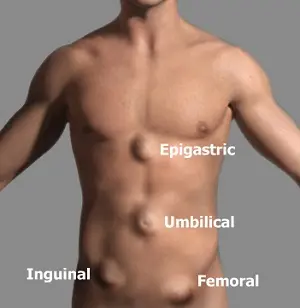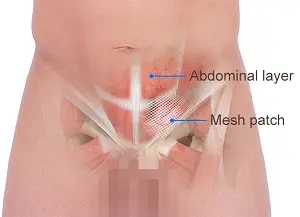Back
Testicular Pain after Inguinal Hernia Repairs
By Shannon Strauch, PTA, STMT-1 on 6/19/2024

An inguinal hernia occurs when tissue, such as part of the intestine, protrudes through a weak spot in the abdominal muscles. The resulting bulge can be painful, especially when you cough, bend over, or lift a heavy object.

Causes
Congenital defects
Increased pressure within the abdomen
Pre-existing weak spot in the abdominal wall
Straining during bowel movements or urination
Heavy lifting
Fluid in the abdomen (ascites)
Pregnancy
Chronic coughing or sneezing
Symptoms
A bulge in the area on either side of the pubic bone
A burning or aching sensation at the bulge
Pain or discomfort in the groin, especially when bending over, coughing, or lifting
Weakness or pressure in the groin
Occasionally, pain and swelling around the testicles when the protruding intestine descends into the scrotum
Diagnosis
Physical exam
Imaging tests
: Ultrasound, CT scan, or MRI
Treatment
Watchful waiting
: For small, asymptomatic hernias
Surgery
: Recommended for larger or painful herniasOpen hernia repair
: A surgeon makes an incision in the groin and pushes the protruding tissue back into the abdomen, then repairs the weakened area.
Laparoscopic hernia repair
: A minimally invasive procedure using small incisions, a camera, and surgical tools to repair the hernia.

Prevention
Maintain a healthy weight
Eat a high-fiber diet
Avoid heavy lifting
Stop smoking (to reduce chronic cough)
Strengthen abdominal muscles
Inguinal hernias can often be managed effectively with surgery, and taking preventive measures can help reduce the risk of developing one.
Understanding Post-Surgical Testicular Pain
Testicular pain after inguinal hernia repair
is a relatively common complication. This can be due to:Nerve Irritation
: The ilioinguinal, iliohypogastric, or genitofemoral nerves may be irritated during surgery.
Inflammation
: Post-surgical inflammation can cause pain.
Scar Tissue
: The formation of scar tissue can sometimes entrap nerves.
Blood Flow Issues
: Changes in blood flow to the testicles after surgery can cause pain.
Role of Pelvic Floor Therapy
Pelvic floor physical therapy
can be beneficial in managing testicular pain post-hernia repair by addressing the underlying causes and improving overall pelvic health.How Pelvic Floor Therapy Can Help
Nerve Desensitization
:Techniques such as nerve gliding exercises can help reduce nerve irritation and sensitivity.
Muscle Relaxation
:Manual therapy to release tension in the pelvic floor muscles and surrounding tissues.
Trigger point therapy to address specific areas of muscle spasm that may contribute to pain.
Scar Tissue Management
:Scar tissue mobilization techniques can help prevent or break down adhesions that might be contributing to pain.
Improving Blood Flow
:Specific exercises and manual techniques to enhance circulation in the pelvic region, promoting healing and reducing inflammation.
Pain Management Techniques
:Biofeedback
to help patients understand and control muscle tension.Education
on pain management strategies and ergonomics.
Postural Adjustments
:Addressing posture and movement patterns to reduce stress on the pelvic region.
Specific Pelvic Floor Therapy Techniques
Myofascial Release
: Gentle pressure and stretching of the pelvic floor muscles to reduce tension.
Stretching and Strengthening Exercises
: To improve flexibility and strength of the pelvic floor and surrounding muscles.
Relaxation Techniques
: Breathing exercises and relaxation techniques to reduce overall muscle tension.
When to Seek Help
If you experience persistent testicular pain after an inguinal hernia repair, it is important to consult with your healthcare provider. They may recommend pelvic floor therapy as part of a comprehensive treatment plan.
Pelvic floor therapy can provide significant relief from testicular pain post-hernia repair by addressing the root causes and promoting overall pelvic health. Reach out to us at Pelvic Health Center in Madison, NJ to set up an evaluation and treatment! Feel free to call us at 908-443-9880 or email us at receptionmadison@pelvichealthnj.com.
Read More:
How Chronic Pelvic Congestion in Men Contributes to Prostatitis By Shannon Strauch, PTA, STMT-1 on 12/11/2024 How lymphatic issues can cause symptoms of prostatitis Prostatitis and Tight Pelvic Floor Muscles: A Comprehensive Guide By Shannon Strauch, PTA, STMT-1 on 12/10/2024 How a tight pelvic floor can be the reason for prostatitis symptoms
Are you ready to live pain free?
Request An Appointment